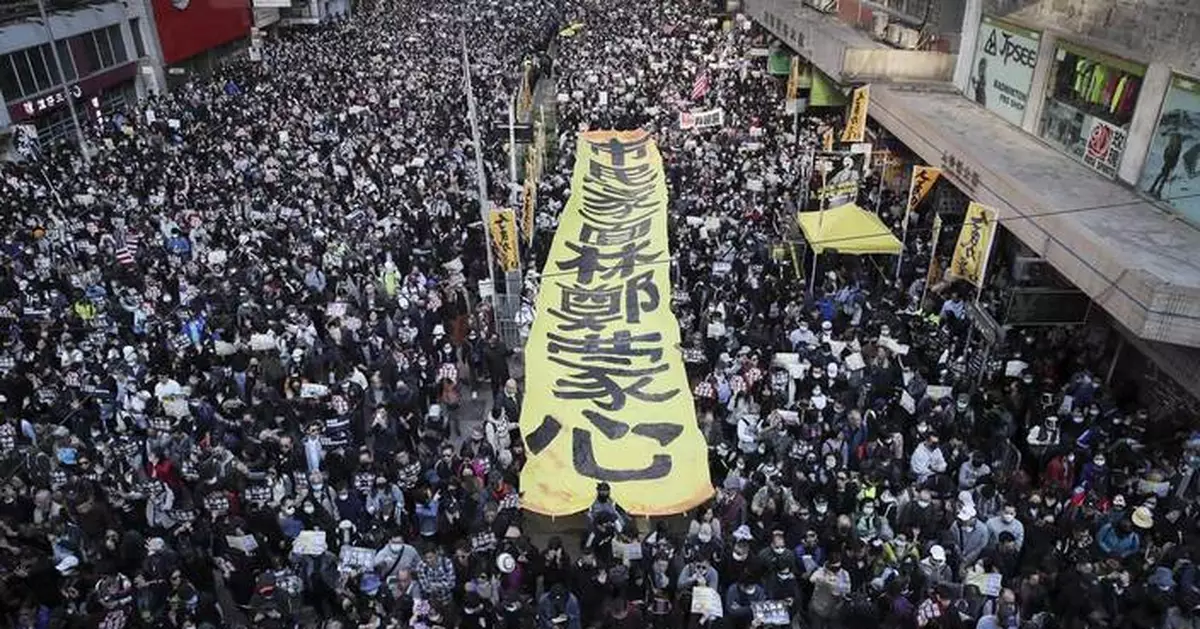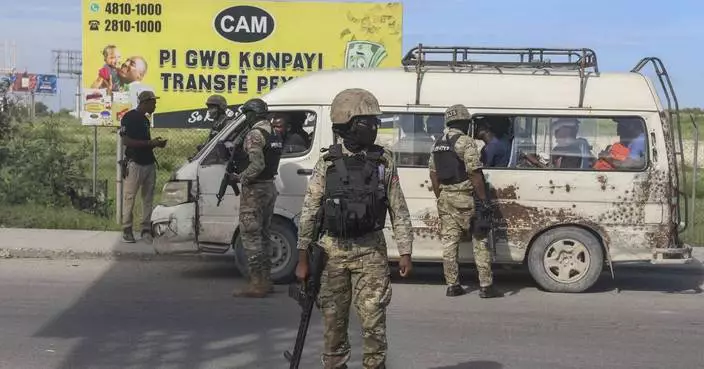HONG KONG (AP) — The mastermind behind a foiled bomb plot during anti-government protests in Hong Kong in 2019 has been jailed for nearly 24 years in the city's first case brought under an anti-terrorism law.
Ng Chi-hung, who had previously pleaded guilty to conspiring to commit the bombing of prescribed objects under the anti-terror law and possession of arms or ammunition with intent to endanger life, was sentenced to 23 years and 10 months by a Hong Kong court on Thursday.
He was among seven convicted defendants who appeared in court for their roles in the plot to plant two bombs and shoot officers along a rally route on Dec. 8, 2019, at a time when accusations of police brutality in handling protesters were widespread.
Judge Judianna Barnes said the plan was vicious and was a declaration of war on society.
The seven are not well-known activists in the semi-autonomous Chinese city’s pro-democracy movement, but their case has drawn attention because the United Nations (Anti-Terrorism Measures) Ordinance was invoked.
Hong Kong enacted the law to implement a U.N. Security Council resolution passed after the Sept. 11, 2001, attacks in the United States.
According to local media, prosecutors said most of the defendants in the case were members of two groups — one led by Ng and another called “Dragon-Slaying Brigade." The prosecution said members of the brigade planned to lure police officers onto an area where bombs would be detonated and a sniper would target them.
Wong Chun-keung, leader of the brigade, was sentenced to more than 13 years. Five other defendants received prison terms ranging from nearly six years to 12 years.
In August, six other defendants, who had pleaded not guilty, were acquitted by a panel of jurors.
Steve Li, chief superintendent for the police's national security department, said he would study the judgment and consider whether to appeal some sentencing decisions. He also criticized those convicted as deranged.
The 2019 protests marked the most concerted challenge to the Hong Kong government since the former British colony returned to Chinese rule in 1997.
Following the protests, more than 10,000 people have been arrested in connection with the often-violent social unrest sparked by a now-withdrawn extradition bill, which would have allowed suspects in Hong Kong to be sent to mainland China.
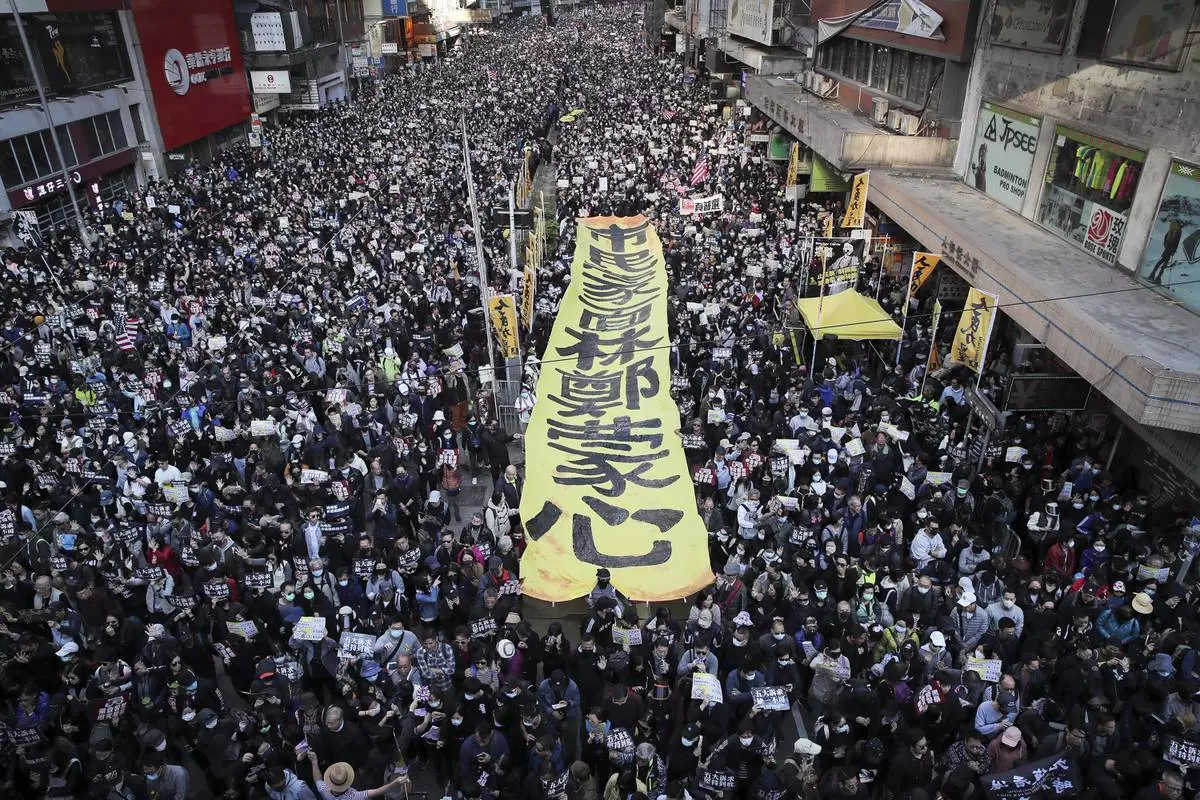
FILE - Pro-democracy protesters march on a street during a protest in Hong Kong, on Dec. 8, 2019. (AP Photo/Kin Cheung, File)
JOHANNESBURG (AP) — South Africa's government says it will not help an estimated 4,000 illegal miners inside a closed mine in the country's North West province who have been denied access to basic supplies as part of an official strategy against illegal mining.
The miners in the mineshaft in Stilfontein are believed to be suffering from a lack of food, water and other basic necessities after police closed off the entrances used to transport their supplies underground.
It is part of the police’s Vala Umgodi, or Close the Hole, operation, which includes cutting off miners’ supplies to force them to return to the surface and be arrested.
North West police spokesperson Sabata Mokgwabone said information received from those who recently helped bring three miners to the surface indicated that as many as 4,000 miners may be underground. Police have not provided an official estimate.
In the past few weeks, over 1,000 miners have surfaced at various mines in North West province, with many reported to be weak, hungry and sickly after going for weeks without basic supplies.
Police continue on Thursday to guard areas around the mine to catch all those appearing from underground.
Cabinet Minister Khumbudzo Ntshavheni told reporters on Wednesday that the government would not send any help to the illegal miners because they are involved in a criminal act.
“We are not sending help to criminals. We are going to smoke them out. They will come out. Criminals are not to be helped. We didn’t send them there," Ntshavheni said.
Illegal mining remains common in South Africa's old gold-mining areas, with miners going into closed shafts to dig for any possible remaining deposits.
The illegal miners are often from neighboring countries, and police say the illegal operations involve larger syndicates that employ the miners.
Their presence in closed mines have also created problems with nearby communities, which complain that the illegal miners commit crimes ranging from robberies to rape.
Illegal mining groups are known to be heavily armed and disputes between rival groups sometimes result in fatal confrontations.
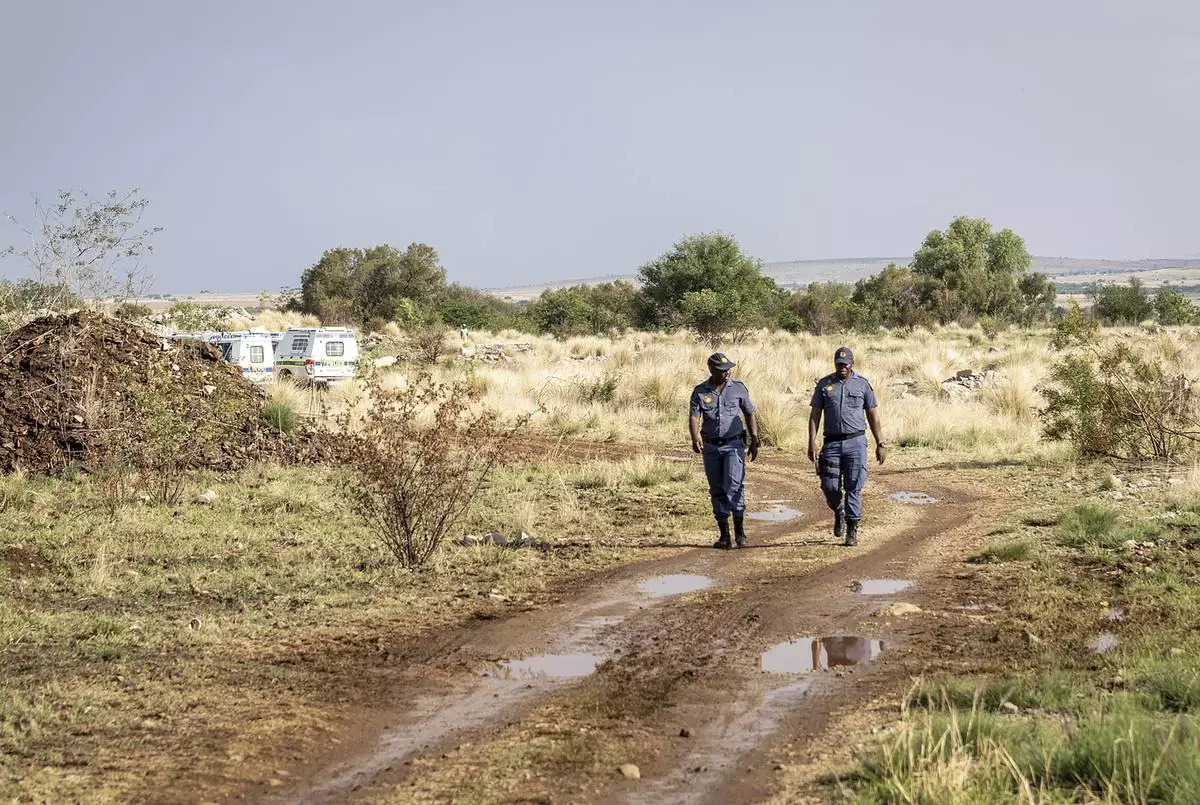
Police patrol at a mine shaft where an estimated 4000 illegal miners are trapped in a disused mine in Stilfontein, South Africa, Wednesday, Nov.13, 2024. (AP Photo)
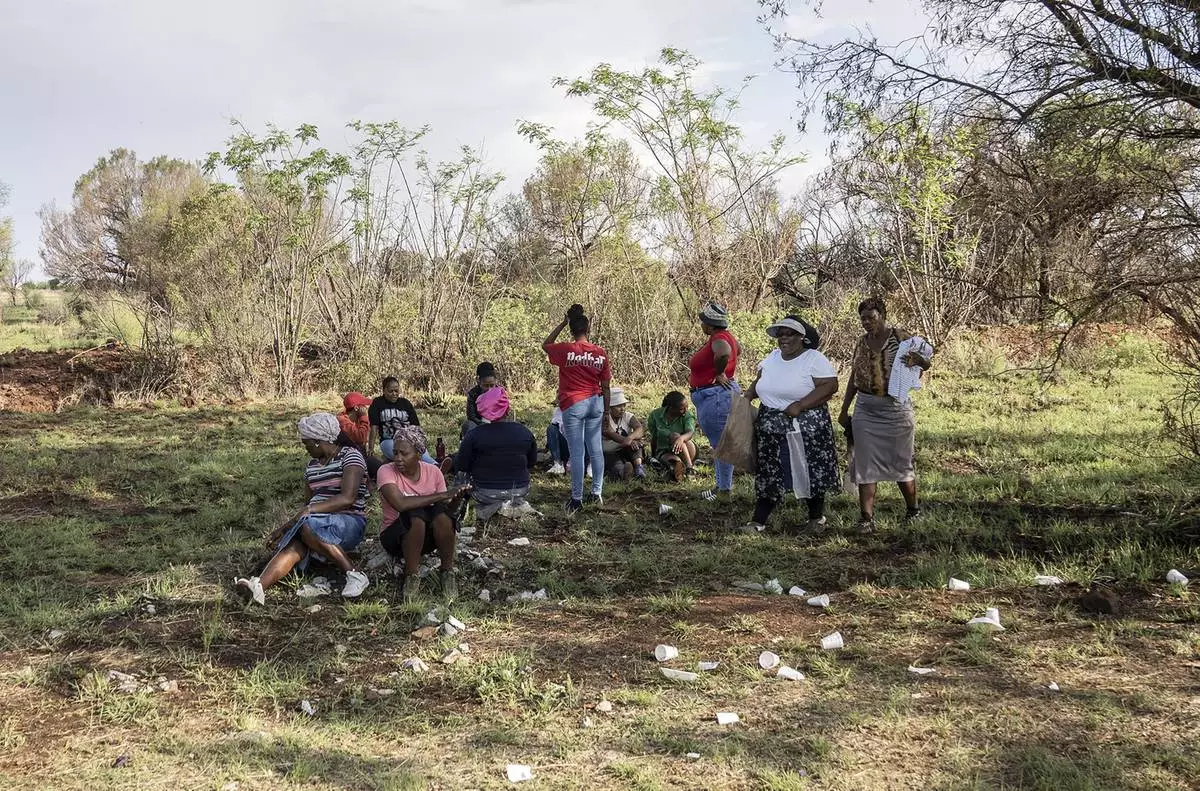
Relatives of miners and community members wait at a mine shaft where an estimated 4000 illegal miners are trapped in a disused mine in Stilfontein, South Africa, Wednesday, Nov.13, 2024. (AP Photo)
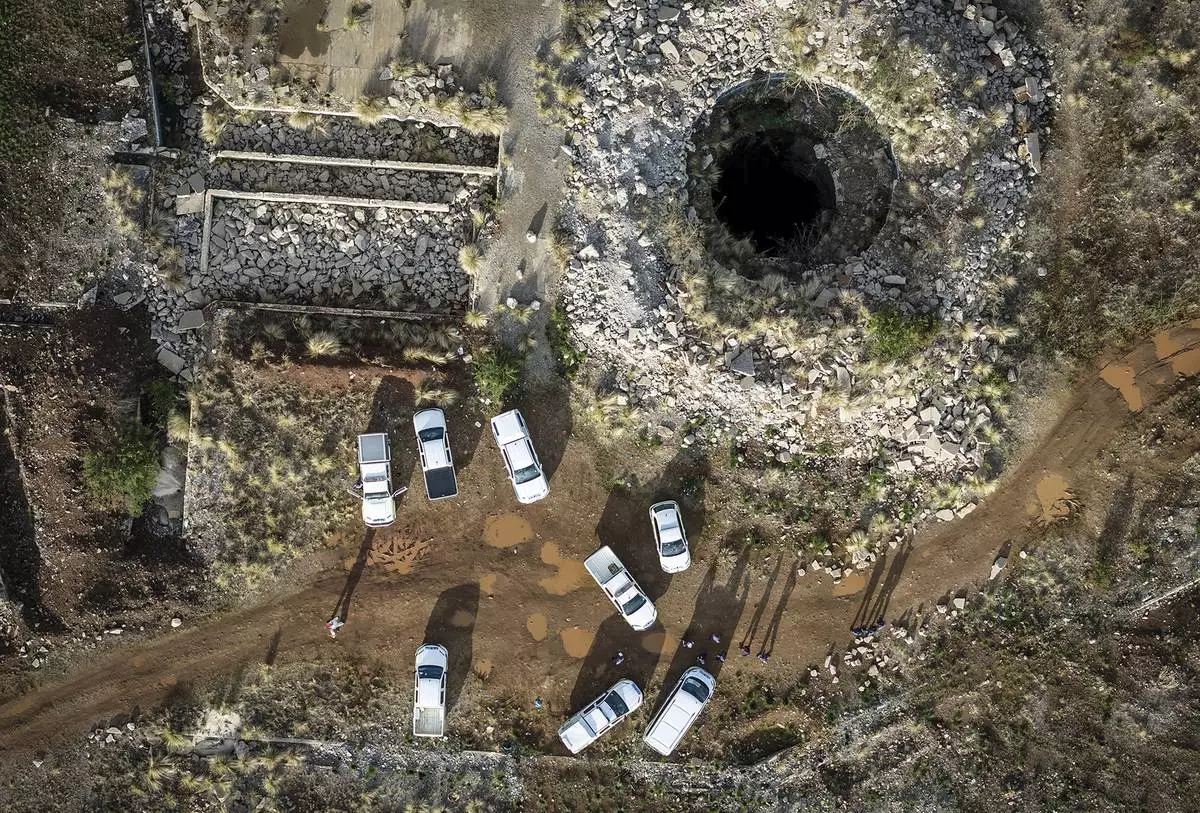
An aerial view of a mine shaft where an estimated 4000 illegal miners are trapped in a disused mine in Stilfontein, South Africa, Wednesday, Nov.13, 2024. (AP Photo)



